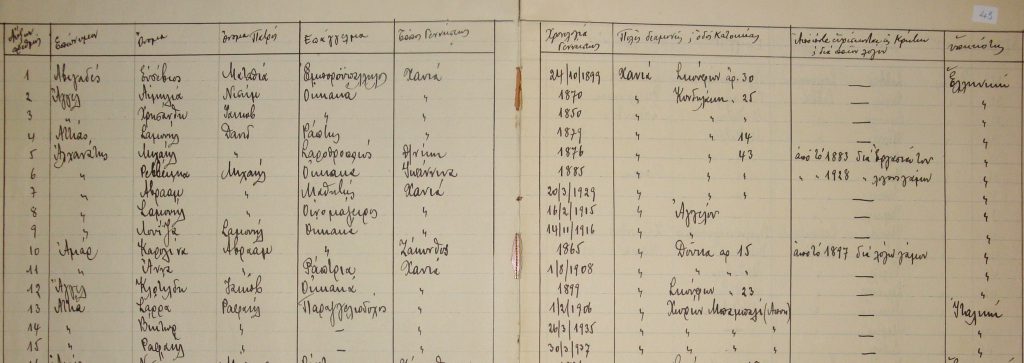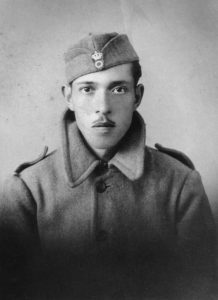
© Historical Archive of Crete
.
Hania Community Research
Jewish communities in Greece outside of Athens and Thessaloniki have rarely found their way into modern historical studies. With the exception of Salonica (today’s Thessaloniki), once the largest Jewish community in Greece, most other Greek Jewish communities have not, as yet, been the focal point of any detailed historical study. Jewish Crete is such a case. Although the tragic circumstances of the destruction of the Cretan Jewish community, as a whole, in June 1944 have been reconstructed to a significant extent, nevertheless, our knowledge of the island’s Jewish communities in the years prior to this event remains fragmented at best.
.
The ongoing research at Etz Hayyim seeks to address this gap in our collective knowledge. It focuses on the Jews of Hania, Crete’s largest pre-war Jewish community in the 20th century, and aims to elucidate this community’s life in the troubled decades before the Second World War.


